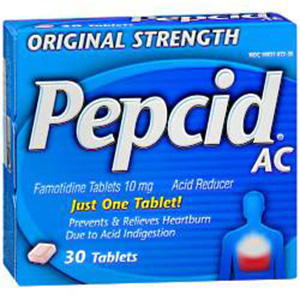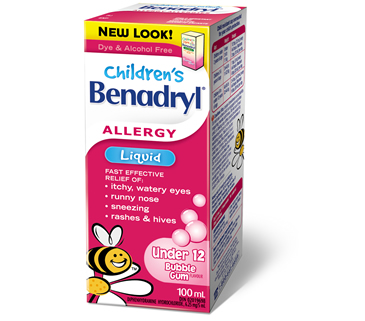So, you're looking at getting your first ferret... here are some helpful supplies and links =)
1) First and foremost - before anything else, you should get and read a copy of
Ferrets for Dummies by Kim Schilling (second edition)--- this is useful both for new and
experienced ferret owners and covers everything from feeding to health concerns, toys and games
to tips to help you bond.
2) FOOD
Personally, at our rescue, we have had luck with "Go! Fit and Free" kibble due to its protein and fat content, ingredients list and small kibble size, but there are several options for ferrets on the market.
Here is a chart of ferret-appropriate foods, rated based on suitability for ferret's nutritional needs. Personally, I would suggest getting something from the top tier to ensure that your ferret's nutritional needs are properly met.
https://sites.google.com/site/sammysclubhouse/moredooksferretfoodchart
Some of our volunteers prefer to feed raw rather than kibble - information on how to transition ferrets to an appropriate raw diet, and mentors to help with transitioning can be found on the holistic ferret forum here
http://holisticferret60.proboards.com/
And some of our volunteers feed a mixture of kibble and freeze dried raw foods such as Stella and Chewy's Chick Chick Chicken, Absolutely Rabbit and Tummy Tickling Turkey foods, Vital Essentials Chicken (or Turkey) Niblets etc.
3) TREATS
Some ferret experts believe that treats are more for the owners than the animals, however it is fun to be able to teach your pet a trick or two and reward them for it. Ferret treats vary, and keep in mind that most ferret treats on the market are high in sugars and actually rather dangerous to the animal's health. Some safe ferret treats include Orijen Freeze Dried treats (stick with poultry flavours; many ferrets do not like stronger meats such as beef or lamb, and many will not eat fish), Wysong Dream Treats, Freeze Dried chicken breast treats, Stella and Chewy's carnivore crunch treats, and other similar treats.
Chicken, Bacon, Banana and Peanut Butter flavoured Bandit Treats (not raisin; that variety is very high in sugar), and N-Bones are not overly healthy treat, but the occasional one (once or twice a month) will not do much harm.
Every ferret is individual and will prefer different treats.
4) OILS (SUPPLEMENT)
This sounds a bit funny, BUT oil - such as Salmon Oil, Cod Liver Oil or Emu Oil (derived from animal sources) are a ferret essential. If your ferret has a high end diet, it is not essential to supplement the diet, but it is extremely useful as a reward or treat, to help with nail clipping, or to give mixed with a teaspoon of pumpkin once or twice a month during shedding season to help ward off hairballs.
Ferretone is a common oil; while some ferret owners swear by it and some of our volunteers use it, some of our other volunteers prefer to avoid it simply due to 1) price (Salmon oil is much less expensive) and 2) additives. Ferretone has a large number of questionable additives and while it is unlikely that your ferret will eat enough ferretone in one go to cause a problem, it is possible that the chemicals will accumulate in the ferret's system and exasperate future problems.
All oil treats are to be given sparingly.
5) CAT NAIL SCISSORS
For bi-weekly nail cutting. Here is a link to help explain the "how to's" of ferret nail care.
http://blog.ferretsnorth.org/search?q=nail+cutting
6) FERRET FRIENDLY SHAMPOO
Ferrets should be washed EXTREMELY infrequently - only a few times a year, or when they are very dirty. Ferret-specific shampoos exist and often work well, but cat/ kitten friendly shampoos can also be used (do not use flea shampoos; ferrets are extremely sensitive to harsh chemicals). Here is a link with tips on washing ferrets.
http://blog.ferretsnorth.org/search?q=bathing
7) A SOFT CAT BRUSH for brushing to help loosen old fur.
8) CAT/KITTEN ENZYMATIC TOOTHPASTE AND Q-TIPS for ear cleaning and tooth brushing. Here are links to explain tooth and ear care.
http://blog.ferretsnorth.org/2010/04/grooming-teeth.html
and
http://blog.ferretsnorth.org/2010/04/filthy-ears-cleaning-ferret-ears.html
9) SOMEWHERE SAFE FOR YOUR FERRET TO GO WHEN YOU ARE NOT HOME
You will need either a ferret cage, a ferret room, or both - an area that your new fuzzy friends can hang out in when you are out of the house to keep them safe. When selecting a cage, remember that bigger is always better, and that ferrets are extremely clumsy so cages with shelves or ramps that only cover a portion of the cage might need extra hammocks to catch falling ferrets and prevent injuries.
http://blog.ferretsnorth.org/search?q=cage
10) FLEECE BLANKETS, COZY BEDS AND HAMMOCKS.
Ferrets LOVE hanging beds, hammocks, cuddle cups and sleep sacks. They love to bury themselves in soft, snag-free fleece blankets. Dollar stores often sell suitable fleece blankets, and local thrift stores often have oodles of suitable blankets in their baby section. I suggest avoiding beds topped with "sweatshirt" type material which can snag easily and catch ferret nails. Ferret beds can be bought at your local pet store, online or hand made. We at Ferrets North Information and Rescue Society make and sell novelty beds and hammocks to help raise funds for vet bills. Our fundraiser store can be found on facebook (we do take commissions).
https://www.facebook.com/FerretsNorthStore/
11) HEAVY CERAMIC FOOD AND WATER DISHES
Or water dishes that can be secured (screwed on) to the side of a cage; I suggest having one or two water dishes in the cage, and a third large one out in the ferret play area. Heavy dishes will reduce spillage (of food and water), but ferrets LOVE to make messes and WILL dig in their water dishes. Water bottles are NOT recommended as they often lead to dehydration and can damage ferret teeth.
12) TUNNELS, TOYS AND DIG BOXES.
Remember to select ferret safe toys. Tips on doing so can be found here.
http://blog.ferretsnorth.org/2008/12/toy-tips.html
And be creative - ferrets need enrichment. Here are some tips on do-it yourself toys
http://blog.ferretsnorth.org/2008/12/penny-pinching-tips-for-ferret-toys.html and I highly recommend dryer tubes - 10" plastic, aired out with the sharp metal bits at either edge taped off with duct tape to make them safe. I also recommend dig boxes to help entertain your ferret, and remove dead hairs. Here is a link to various types of dig boxes that you can create at home.
http://blog.ferretsnorth.org/2011/04/dig-boxes.html
And, of course, because ferrets are very interactive, here is a link to games that you and your ferret can enjoy together.
http://blog.ferretsnorth.org/2011/10/ferret-games.html
13) PUPPY PADS AND LITTER BOXES
No ferret will be perfect at the litter box, but getting proper litter boxes, the right litter, and adding puppy pads throughout the house and in front of boxes can help a good deal. Avoid those "corner" triangle shaped litter boxes. We often get them in with ferrets (along with reports of ferrets never using the boxes) and have a lovely stack of them for our basement. They are awkwardly shaped, and generally speaking, ferrets prefer larger boxes that they can fit their whole bodies in. Here is a link that talks a bit about litter training
http://blog.ferretsnorth.org/2011/02/de-miss-tifying-ferret-toilet-habits.html, and another that discusses various litter types
http://blog.ferretsnorth.org/2009/07/scoop-on-ferret-litter.html.
14) A LOUD SQUEAKY TOY.
This isn't for playing- some ferrets can be trained to come to loud squeaking. This can be useful if they escape from your house, get into a wall, or you need to find them in a hurry. Here is a link to help explain squeak training.
http://blog.ferretsnorth.org/2009/12/squeaky-weasels-squeak-training-your.html
15) MOST IMPORTANTLY - a ferret proofed house.
Ferrets proofing is never done, but ignoring risks can lead to an unfortunately accident, and lifelong guilt. Ferret proofing - room by room - can be found in Ferrets For Dummies or on our blog.





_.jpg)



